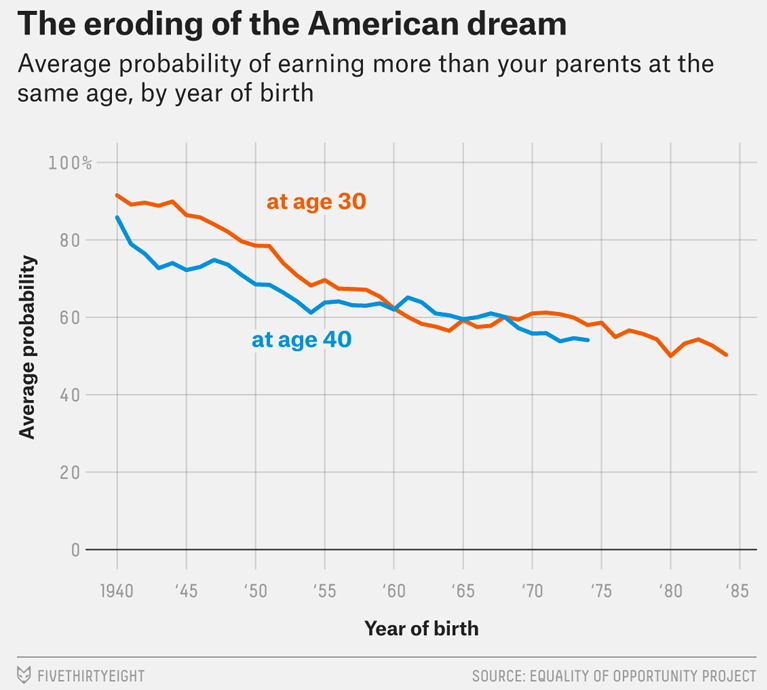On Economic Justice.
 Before I begin today’s Note, an acknowledgment of the events of last week. Since assuming office, President Trump has taken a number of steps that pose a threat to the health of populations. These include reinstating and expanding the “Global Gag Rule,” also known as “the Mexico City Policy”—which will curtail the ability of women worldwide to access safe reproductive care—as well as moving to roll back environmental regulations, limit immigration from several predominantly Muslim countries, and lay the groundwork for the construction of a wall along our southern border. I have written before about how reproductive justice, environmental stewardship, and the health of migrants and refugees are all key public health concerns. For added context about the issue of migrant health, we have chosen to re-run a prior Dean’s Note on the subject. The content of today’s Note suggests a way forward; a possible strategy to help us navigate this uncertain new terrain. These recent events may justifiably provoke anxiety. They also argue all the more, I think, for the essential role of science, scholarship, and a robust academic engagement in the critical issues of our time that shape the public’s health.
Before I begin today’s Note, an acknowledgment of the events of last week. Since assuming office, President Trump has taken a number of steps that pose a threat to the health of populations. These include reinstating and expanding the “Global Gag Rule,” also known as “the Mexico City Policy”—which will curtail the ability of women worldwide to access safe reproductive care—as well as moving to roll back environmental regulations, limit immigration from several predominantly Muslim countries, and lay the groundwork for the construction of a wall along our southern border. I have written before about how reproductive justice, environmental stewardship, and the health of migrants and refugees are all key public health concerns. For added context about the issue of migrant health, we have chosen to re-run a prior Dean’s Note on the subject. The content of today’s Note suggests a way forward; a possible strategy to help us navigate this uncertain new terrain. These recent events may justifiably provoke anxiety. They also argue all the more, I think, for the essential role of science, scholarship, and a robust academic engagement in the critical issues of our time that shape the public’s health.
在
What might we mean by “economic justice”?
电子商务
我们

Casselman B. Inequality is Killing the American Dream. FiveThirtyEight. December 8, 2016. http://fivethirtyeight.com/features/inequality-is-killing-the-american-dream/?ex_cid=538twitter Accessed January 5, 2016.
This mobility decline has been particularly pronounced in the Rust Belt states that Trump carried in the election. Indeed, it is worth recalling that, in his speech announcing his candidacy, Trump spoke to this decline, saying “[T]he American dream is dead.”
Although there is a robust academic debate about the exact architecture of the income and health relationship, there is little doubt that economics fundamentally drive a broad range of factors, including health. This would suggest that a focus on economic factors as foundational to the production of health stands to be both a rational investment in the drivers of population health and well-being, and, potentially, a focus for collective efforts towards creating a better world. Unfortunately, efforts to tackle income and economic drivers often get tangled in ideological discussions, in clashes around visions for an economy that is driven principally by individual efforts versus government investment. In some respects, this argument, while perhaps relevant at a political level, stymies efforts to improve our foundational economic function towards the end of creating healthier populations.
I would suggest, therefore, that an economic justice focus stands to lend clarity to our efforts and can serve as a focus for the work of those concerned with the health of populations and with the well-being of populations more broadly.
How might a focus on economic justice inform our collective aspirations?
Th
There are a number of challenges to the kind of political engagement necessary to mitigate economic injustice in the US. This engagement entails the often frustrating business of working within systems to effect change. It also opens us to charges of partisanship. But health is inherently political, and while the incoming Trump administration is in many ways a discouraging prospect for public health, it also represents an unprecedented opportunity to argue for lasting solutions to the problem of economic injustice, towards healthier populations.
In next week’s note, I will discuss at greater length how a call for shared justice, coupled with this approach to economic justice, might even further advance the cause of public health.
I hope everyone has a terrific week. Until next week.
Warm regards,
Sandro
Sandro Galea, MD, DrPH
Dean and Robert A. Knox Professor, Boston University School of Public Health
Twitter: @sandrogalea
Acknowledgement: I am grateful to Eric DelGizzo and Catherine Ettman for their contributions to this Dean’s Note.
Previous Dean’s Notes are archived at: /sph/tag/deans-note/